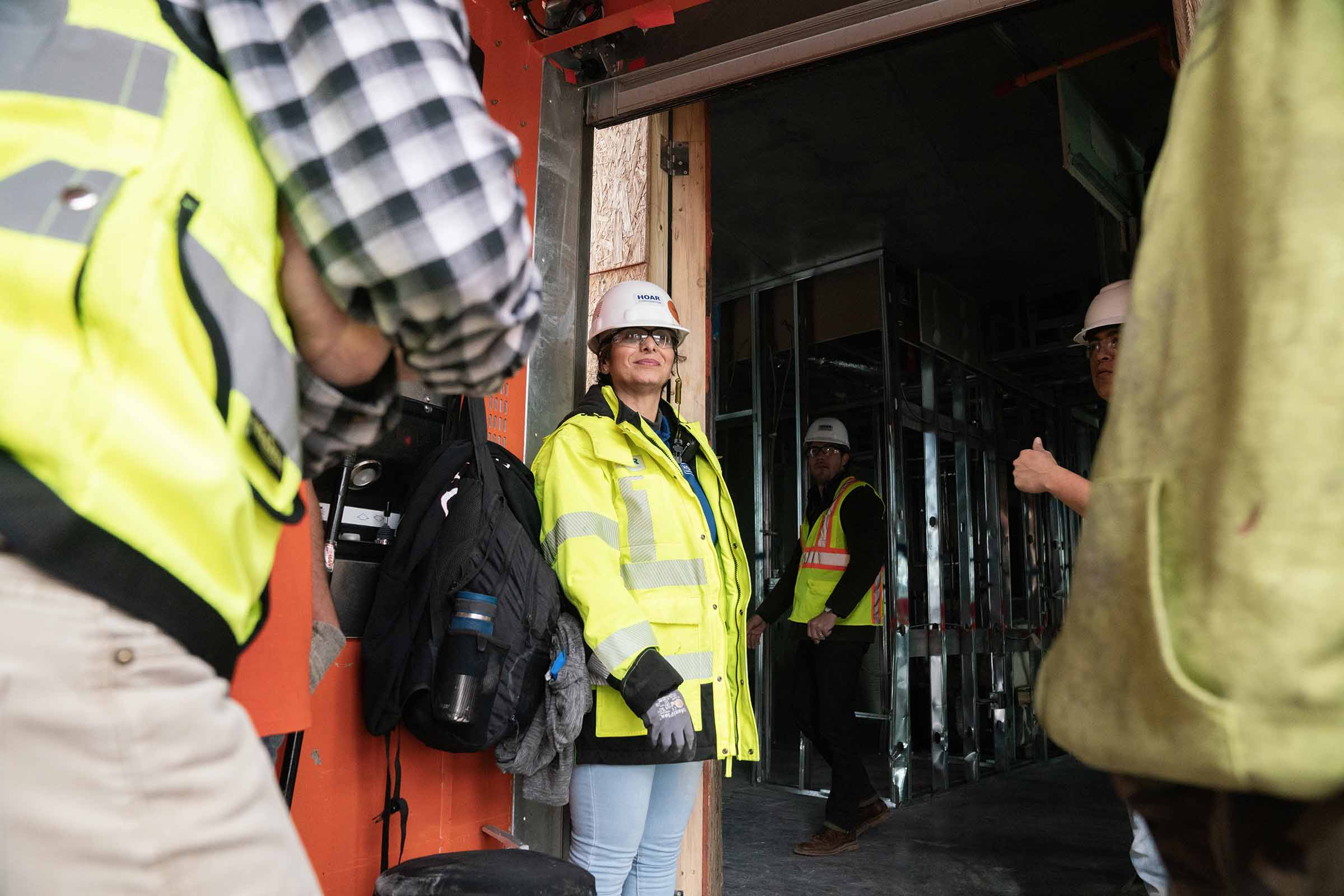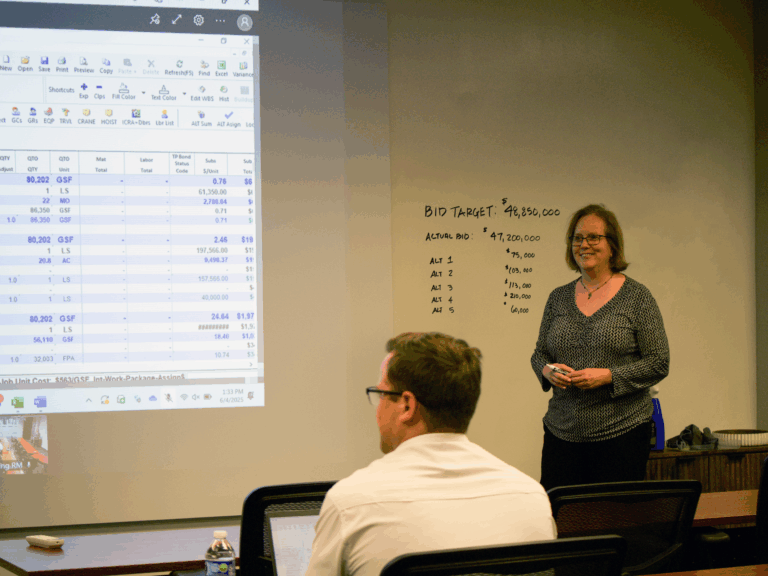
The commercial construction industry deals in large dollar amounts and multiple deadlines, which often leads to conflict. That conflict creates stress, and the stress affects everyone on a job. Throughout the life of a project, this cycle gets repeated, faster and faster.
There are solutions to the craziness. But buzz words like lean thinking, moving left, pull planning, and collaboration can add to the confusion if we don’t stop and define what it is we want to change and then act to change it.
So let’s keep it simple. We want action and progress on our projects. How do we get that? By focusing on people and relationships. We have a painting in our corporate office lobby that was commissioned to remind us that we ALL work for the projects, and there are many people waiting on information and decisions to make that progress we want and need.
To make action happen we need to focus on a couple of areas:
Communication. We know our real job lies in managing people not projects, yet most of our training is focused on the processes to build the job. The first thing we must do is improve out “soft skills.” Our ability to set expectations and follow up to see they are met is critical. Giving and receiving feedback throughout the process is also vital to achieving the results we need.
Commitment. We have also noted that the proper kick off to new jobs must start with a high level of commitment between the right executives and team members (owner, architect, contractor, etc.). Here we can establish realistic goals and accountabilities for one another. We can set expectations and determine how often we will talk and review important decisions and progress. This is the No. 1 way in we can “move left.” Here we can ask for and receive more procurement time to allow a smoother flow to the entire project. Procurement time greatly impacts the construction process. When we fix this, much of the stress will be improved.
Collaboration. Lean thinking depends on collaboration (and communication, see point No. 1). Pull planning is a tool to improve both, and we are looking at more ways to adopt this in the preconstruction process. It will facilitate our ability to get additional procurement time and set clearer expectations.
One of our core values is the Golden Rule: do unto others as you would have them do unto you. I can’t emphasize enough, our work is not about managing projects as much as its about managing the people. Relationships matter most. You can’t have a good relationship if you are not communicating well, if you’re not committed to one another and the project, and if you’re not collaborating. If we improve our soft skills and use the tools available to us, we will improve the relationships.
So, to quote one of our board members, “It’s all about people.”

